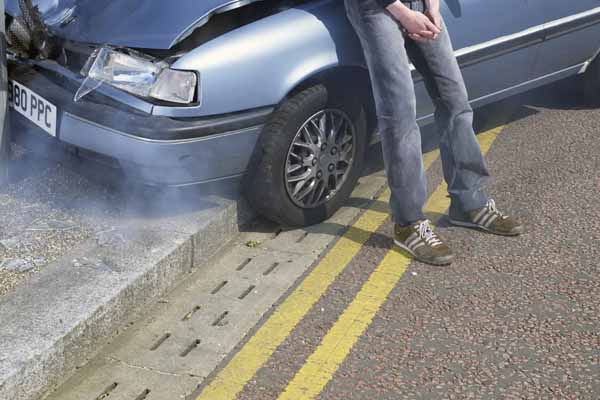How to Get the Best Car Insurance: An Expert's Guide for 2024
Navigating the complex world of car insurance can be overwhelming, but with the right knowledge and strategies, you can secure the best coverage tailored to your needs. This expert guide will walk you through the essential steps to get the best car insurance policy that provides both protection and value.
Understand Your Car Insurance Needs
Before shopping for auto insurance, it’s important to assess what coverage you truly need based on your circumstances:
State Requirements: Each state has minimum liability coverage requirements. Ensure that your policy meets or exceeds these legal obligations.
Vehicle Value: If you drive a new or high-value car, consider comprehensive and collision coverage to protect your investment.
Personal Circumstances: Your driving habits, financial situation, and risk tolerance will influence your coverage choices.
You may be interested: What Is Comprehensive Insurance?
Shop Around and Compare Quotes
One of the most effective ways to find the best car insurance rates is to compare quotes from multiple providers. Here’s how you can do it:
Use Online Comparison Tools: Websites and apps allow you to receive instant quotes from different insurers based on your information.
Consult an Independent Agent: Insurance agents can offer personalized quotes from various companies, helping you find the best deal.
Check for Hidden Fees: Read the fine print to avoid unexpected charges.
You may be interested: How to Compare Car Insurance Quotes Effectively
Consider Bundling Policies
Many insurance providers offer discounts if you bundle multiple policies, such as auto and homeowners insurance. This strategy can lead to:
- Multi-Policy Discounts: Combining policies often results in significant savings.
- Simplified Management: Managing all your insurance needs with one provider can streamline payments and renewals.
Look for Discounts
Insurance providers offer various discounts that can help lower your premiums:
- Good Driver Discount: Maintain a clean driving record to qualify for lower rates.
- Safety Features Discount: Cars equipped with anti-theft devices, airbags, or advanced safety technology may be eligible for discounts.
- Good Student Discount: Young drivers with good academic performance can benefit from reduced premiums.
- Low Mileage Discount: Driving fewer miles annually can also result in savings.
Evaluate Coverage Options
Understanding different coverage types ensures you choose the best policy for your needs:
Liability Coverage: This covers bodily injury and property damage you may cause to others.
Collision Coverage: Pays for damage to your vehicle from a collision.
Comprehensive Coverage: Covers non-collision-related incidents like theft, vandalism, or natural disasters.
Uninsured/Underinsured Motorist Coverage: Protects you if you're involved in an accident with a driver who has insufficient or no insurance.
Related Article: What Is Comprehensive Car Insurance?
Check the Insurer's Reputation
Choosing the right insurer is critical for both peace of mind and financial security. Here’s what to look for:
- Financial Stability: Research the company’s financial strength through agencies like A.M. Best or Standard & Poor's to ensure they can pay out claims.
- Customer Service: Check reviews and seek recommendations to gauge customer satisfaction.
- Claims Process: Understand how the insurer handles claims—quick and fair settlements are essential.
Review Policy Terms Carefully
Before finalizing your insurance purchase, it’s important to scrutinize the policy terms:
- Deductibles: Higher deductibles can lower premiums but increase out-of-pocket costs if you file a claim.
- Coverage Limits: Ensure that your policy limits are high enough to cover potential losses.
- Exclusions and Conditions: Be aware of any exclusions or conditions that could limit your coverage in certain situations.
Improve Your Credit Score
In many states, insurers consider credit scores when determining premiums. A higher score can result in lower rates. Here’s how to improve your score:
- Pay Bills on Time: Consistent, timely payments help boost your credit score.
- Reduce Debt: Lowering your debt-to-income ratio can also improve your score.
- Check Credit Reports: Regularly review your credit report for any errors and dispute inaccuracies.
Maintain a Good Driving Record
Your driving habits can have a significant impact on your car insurance premiums:
- Avoid Traffic Violations: Speeding tickets and other infractions can raise your rates.
- Accident-Free Record: Drivers with a clean accident record often qualify for better rates.
Consider Usage-Based Insurance
Usage-based insurance (UBI) programs are becoming more popular. These programs use telematics devices or apps to monitor your driving habits, rewarding safe drivers with lower premiums.
- Customized Premiums: Safe driving behaviors, such as obeying speed limits and avoiding hard braking, can lead to personalized discounts.
- Driving Feedback: Some UBI programs provide feedback on your driving habits, helping you become a safer driver.
Regularly Review and Update Your Policy
As your life changes, so do your insurance needs. Here’s why it’s important to regularly review your policy:
Life Changes: Events such as moving, marriage, or adding a teen driver to your policy can affect your coverage needs.
Policy Adjustments: Regularly reviewing your policy ensures you’re not paying for coverage you don’t need or missing out on new discounts.
Related Article: How to Review and Update Your Car Insurance Policy
Choosing the Right Insurance Provider
When selecting an insurance provider, look for the following:
Reputation and Financial Stability: Ensure your insurer has a solid reputation and financial standing.
Customer Service Quality: Reliable customer service is key, especially when filing claims. Look for reviews that highlight the responsiveness of the company.
Claims Process: Choose a provider with an easy and fair claims process for peace of mind in case of an accident.
Authority Link: National Highway Traffic Safety Administration (NHTSA) on Car Safety Features
Conclusion
Securing the best car insurance involves understanding your coverage needs, comparing quotes, and taking advantage of discounts. By following these expert tips, you can find a policy that not only offers optimal coverage but also fits your budget. Remember, the goal isn’t just to find the cheapest insurance, but the one that provides the best value and peace of mind while driving.















